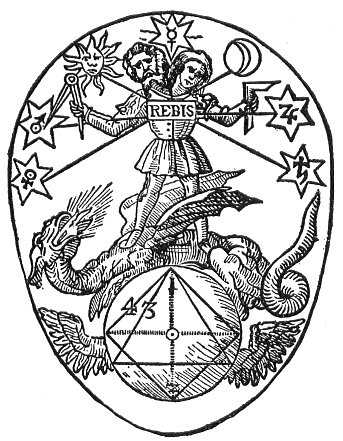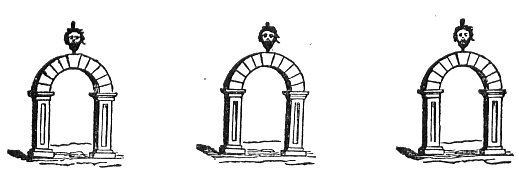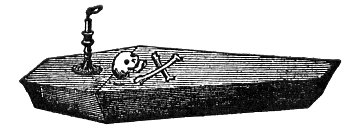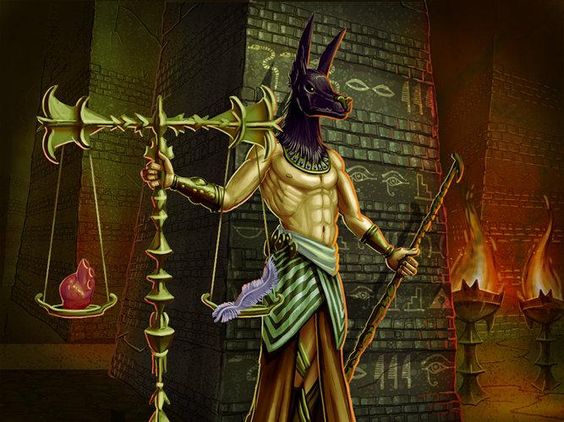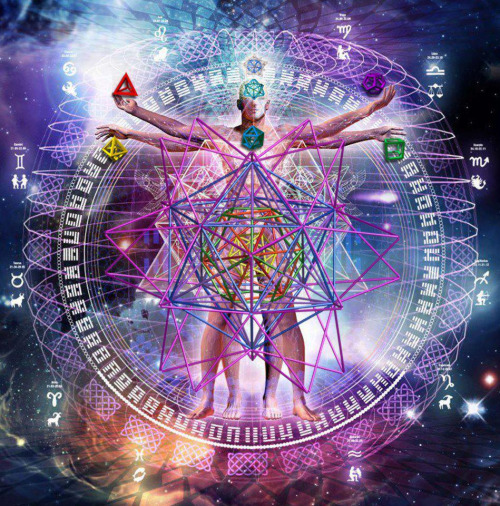Thus believing, he has attained an eminence in virtue, the highest, amid passive excellence, which humanity can reach. He finds his reward and his support in the reflection that he is an unreluctant and self-sacrificing co-operator with the Creator of the Universe; and in the noble consciousness of being worthy and capable of so sublime a conception, yet so sad a destiny. He is then truly
p. 229
entitled to be called a Grand Elect, Perfect, and Sublime Mason. He is content to fall early in the battle, if his body may but form a stepping-stone for the future conquests of humanity.
It cannot be that God, Who, we are certain, is perfectly good, can choose us to suffer pain, unless either we are ourselves to receive from it an antidote to what is evil in ourselves, or else as such pain is a necessary part in the scheme of the Universe, which as a whole is good. In either case, the Mason receives it with submission. He would not suffer unless it was ordered so. What-ever his creed, if he believes that God is, and that He cares for His creatures, he cannot doubt that; nor that it would not have been so ordered, unless it was either better for himself, or for some other persons, or for some things. To complain and lament is to murmur against God’s will, and worse than unbelief.
The Mason, whose mind is cast in a nobler mould than those of the ignorant and unreflecting, and is instinct with a diviner life,–who loves truth more than rest, and the peace of Heaven rather than the peace of Eden,–to whom a loftier being brings severer cares,–who knows that man does not live by pleasure or content alone, but by the presence of the power of God,–must cast behind him the hope of any other repose or tranquillity, than that which is the last reward of long agonies of thought; he must relinquish all prospect of any Heaven save that of which trouble is the avenue and portal; he must gird up his loins, and trim his lamp, for a work that must be done, and must not be negligently done. If he does not like to live in the furnished lodgings of tradition, he must build his own house, his own system of faith and thought, for himself,
The hope of success, and not the hope of reward, should be our stimulating and sustaining power. Our object, and not ourselves, should be our inspiring thought. Selfishness is a sin, when temporary, and for time. Spun out to eternity, it does not become celestial prudence. We should toil and die, not for Heaven or Bliss, but for Duty.
In the more frequent cases, where we have to join our efforts to those of thousands of others, to contribute to the carrying forward of a great cause; merely to till the ground or sow the seed for a very distant harvest, or to prepare the way for the future advent of some great amendment; the amount which each one contributes to the achievement of ultimate success, the portion of the
p. 230
price which justice should assign to each as his especial production, can never be accurately ascertained. Perhaps few of those who have ever labored, in the patience of secrecy and silence, to bring about some political or social change, which they felt convinced would ultimately prove of vast service to humanity, lived to see the change effected, or the anticipated good flow from it. Fewer still of them were able to pronounce what appreciable weight their several efforts contributed to the achievement of the change desired. Many will doubt, whether, in truth, these exertions have any influence whatever; and, discouraged, cease all active effort.
Not to be thus discouraged, the Mason must labor to elevate and purify his motives, as well as sedulously cherish the conviction, assuredly a true one, that in this world there is no such thing as effort thrown away; that in all labor there is profit; that all sincere exertion, in a righteous and unselfish cause, is necessarily followed, in spite of all appearance to the contrary, by an appropriate and proportionate success; that no bread cast upon the waters can be wholly lost; that no seed planted in the ground can fail to quicken in due time and measure; and that, however we may, in moments of despondency, be apt to doubt, not only whether our cause will triumph, but whether, if it does, we shall have contributed to its triumph,–there is One, Who has not only seen every exertion we have made, but Who can assign the exact degree in which each soldier has assisted to gain the great victory over social evil. No good work is done wholly in vain,

Moe is the founder of GnosticWarrior.com. He is a father, husband, author, martial arts black belt, and an expert in Gnosticism, the occult, and esotericism.

